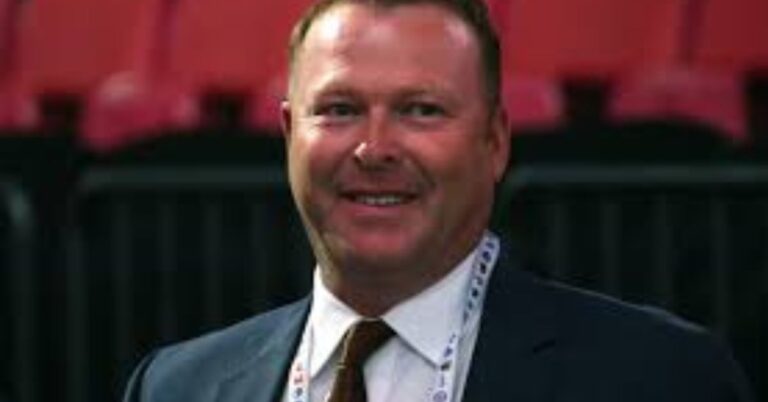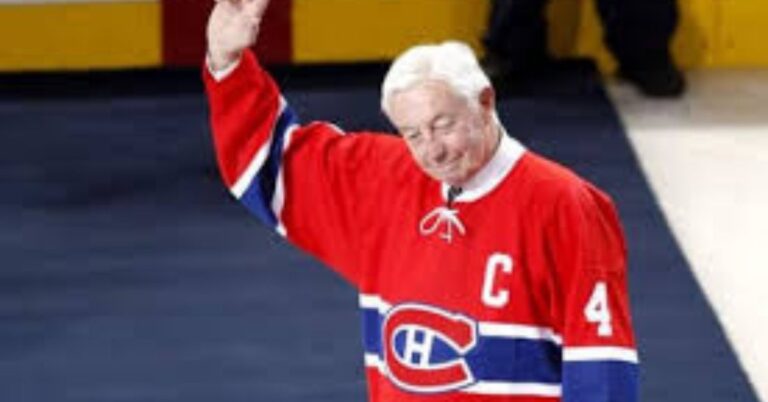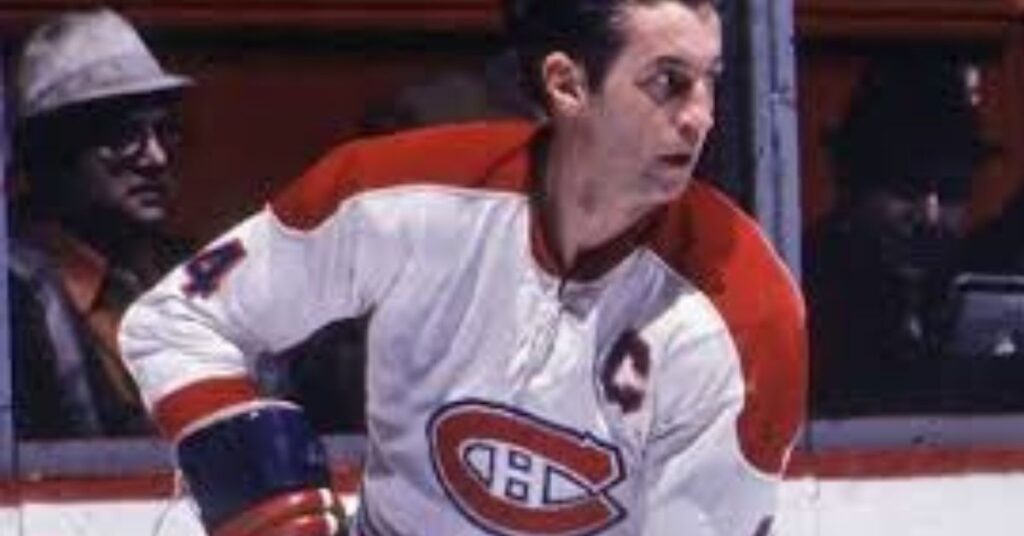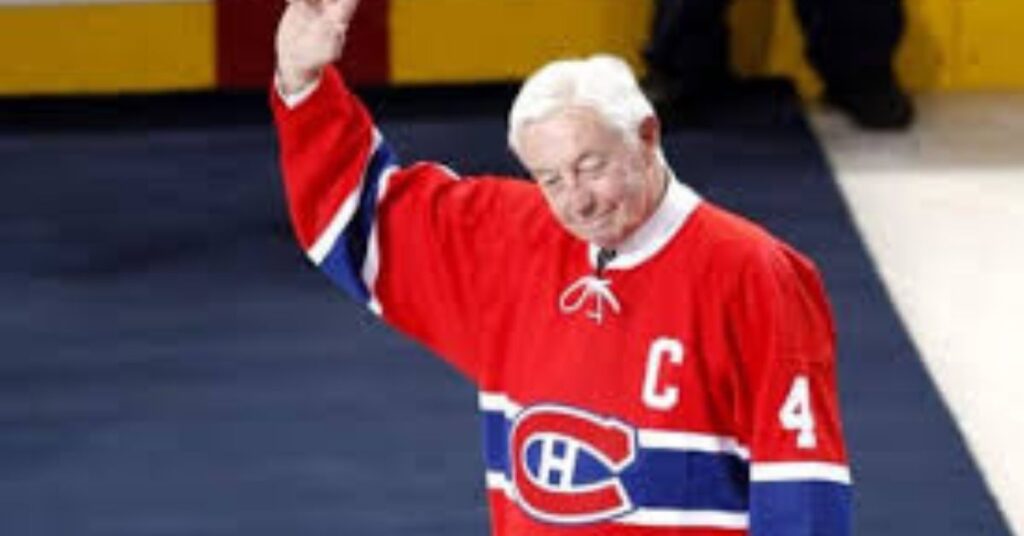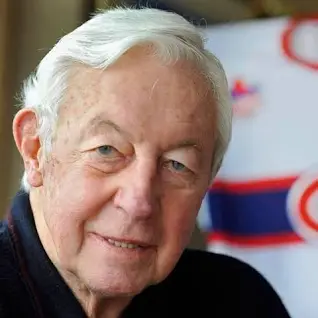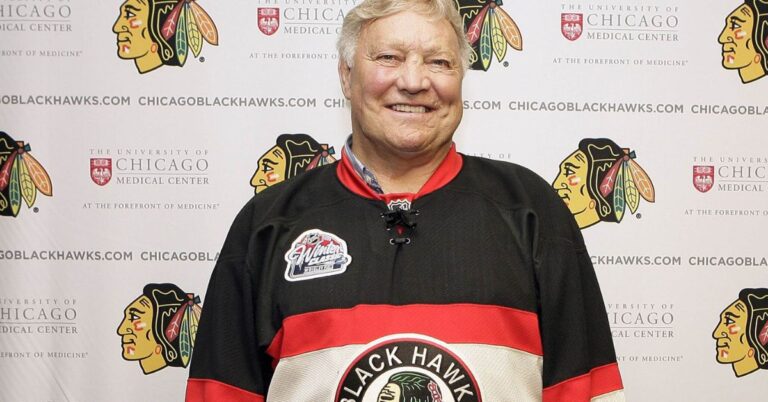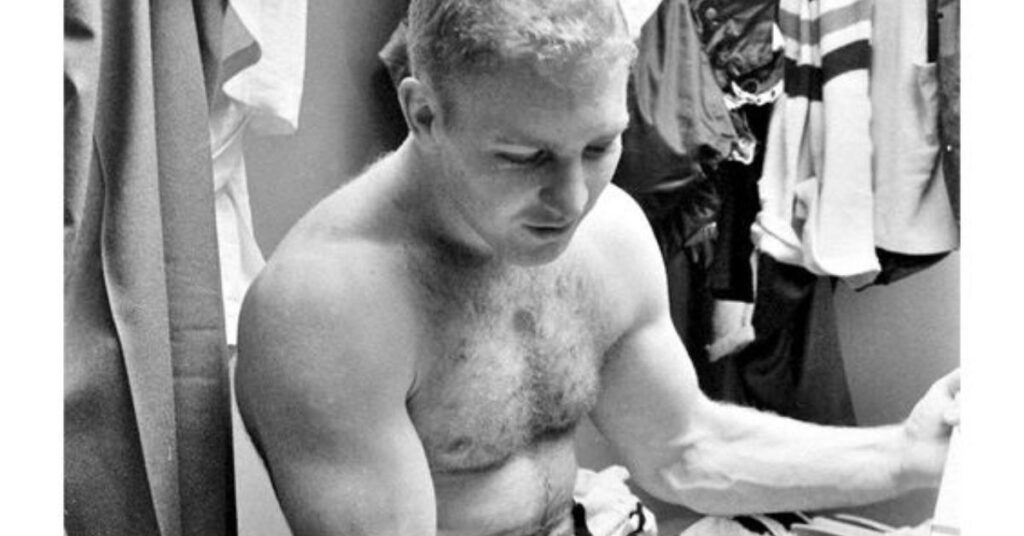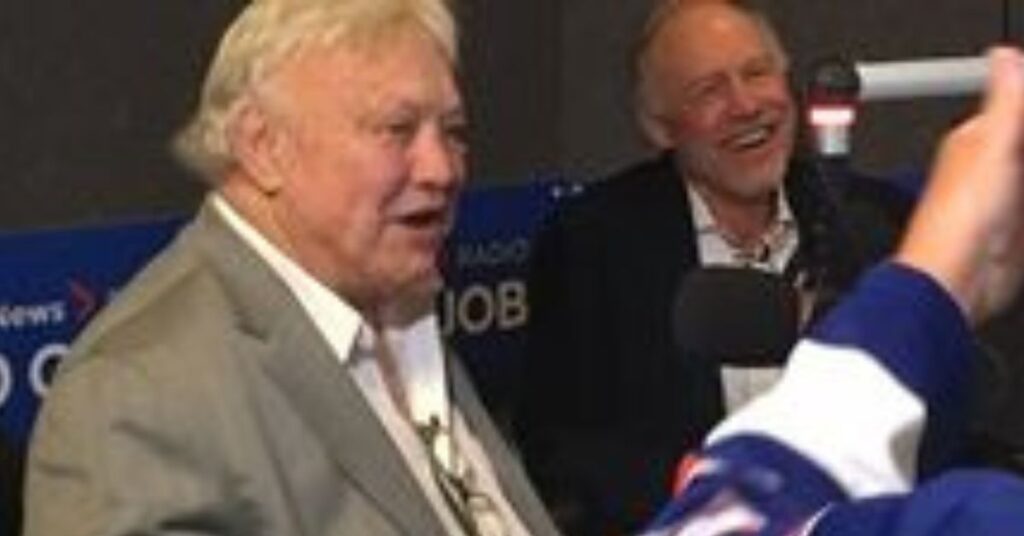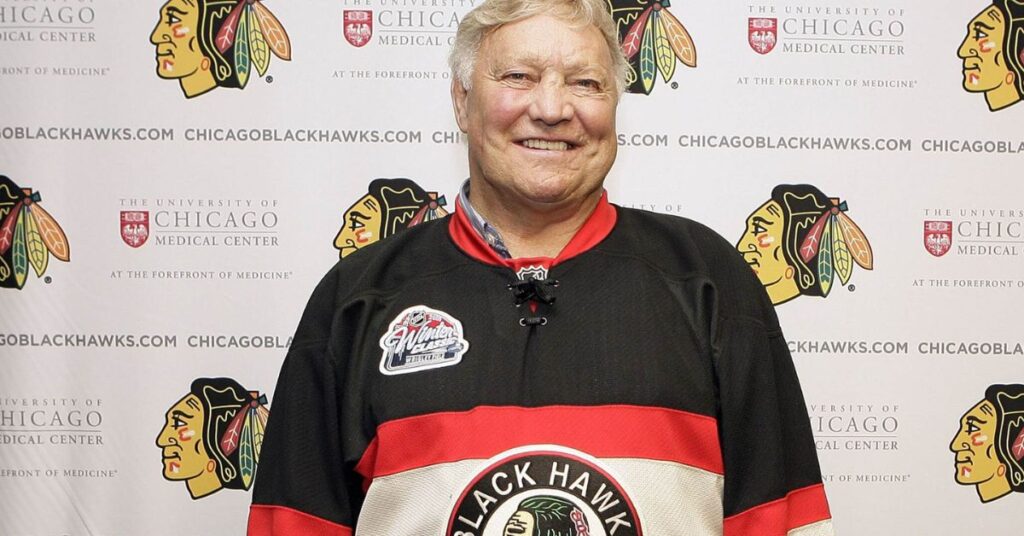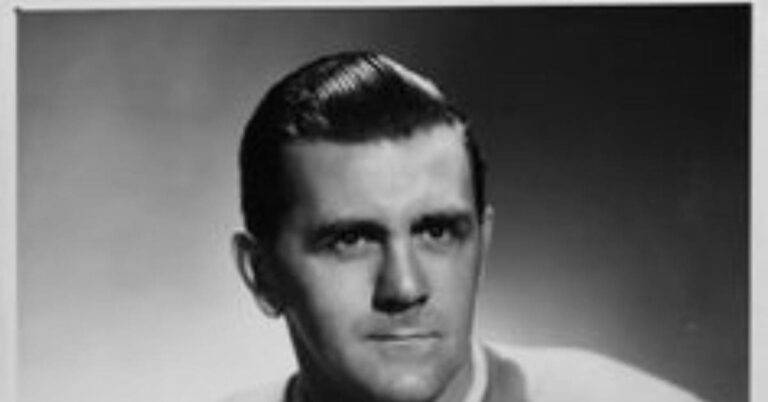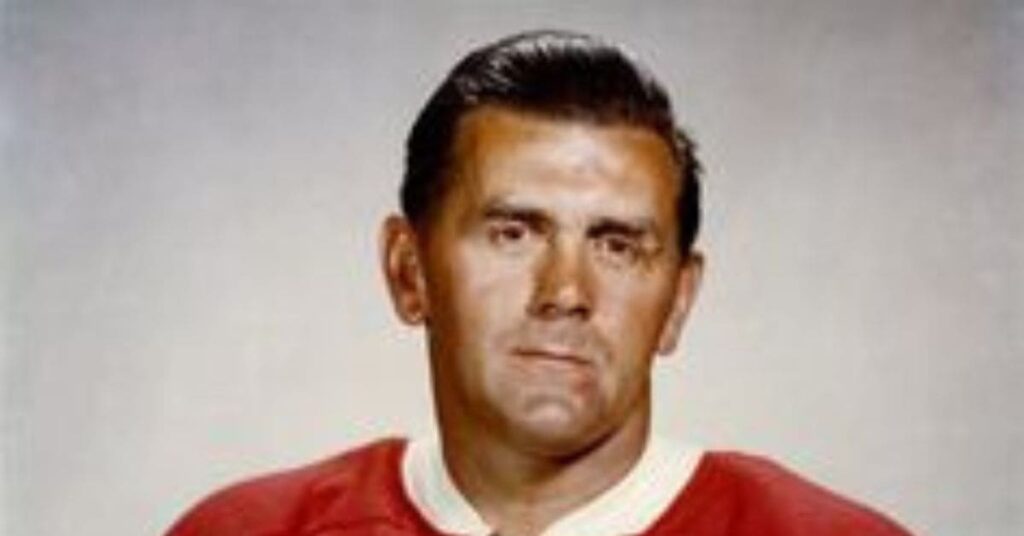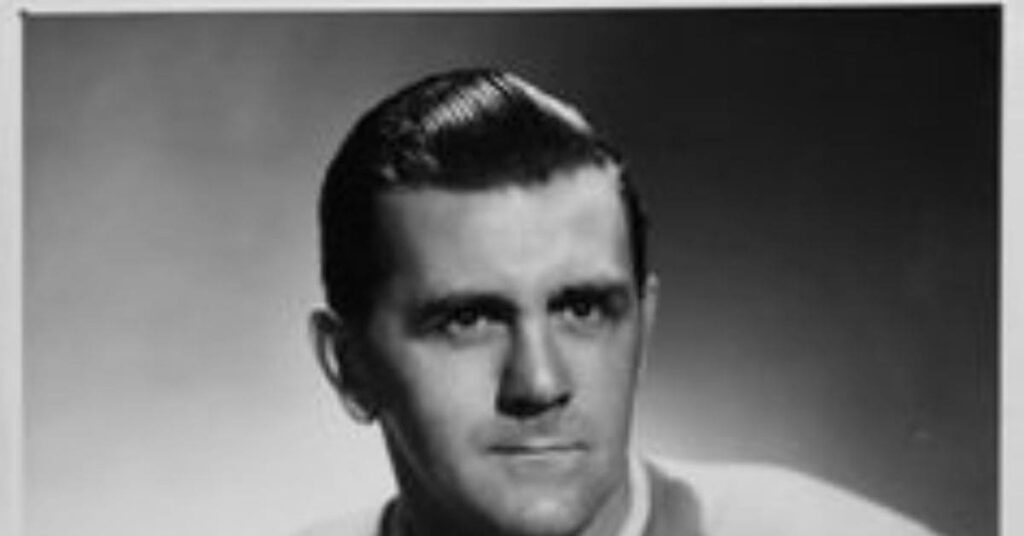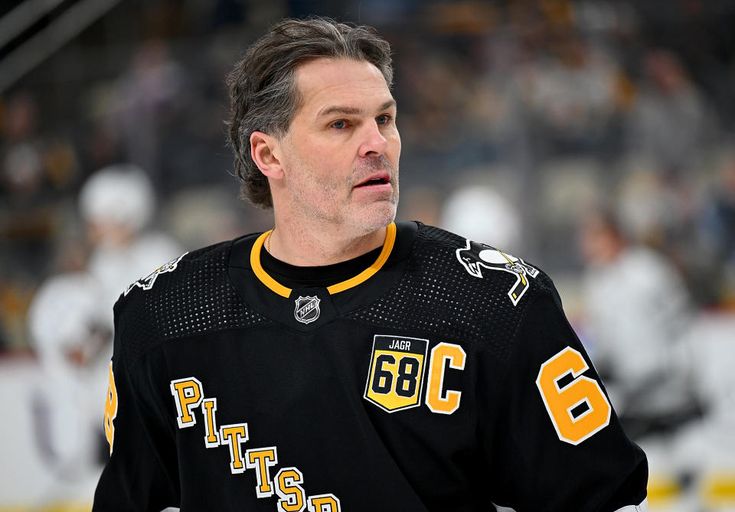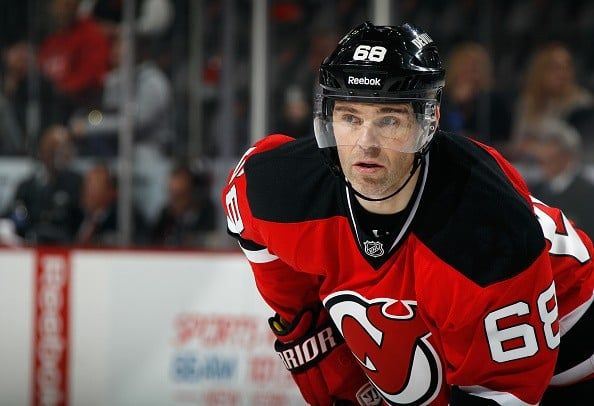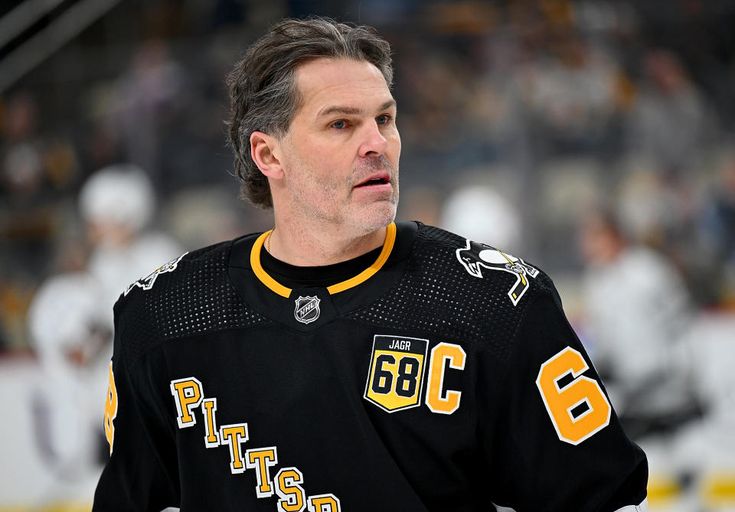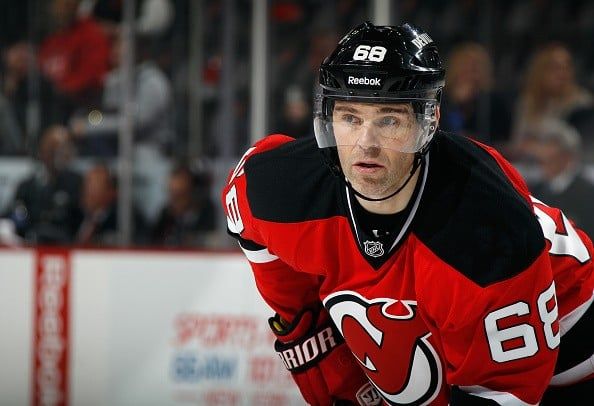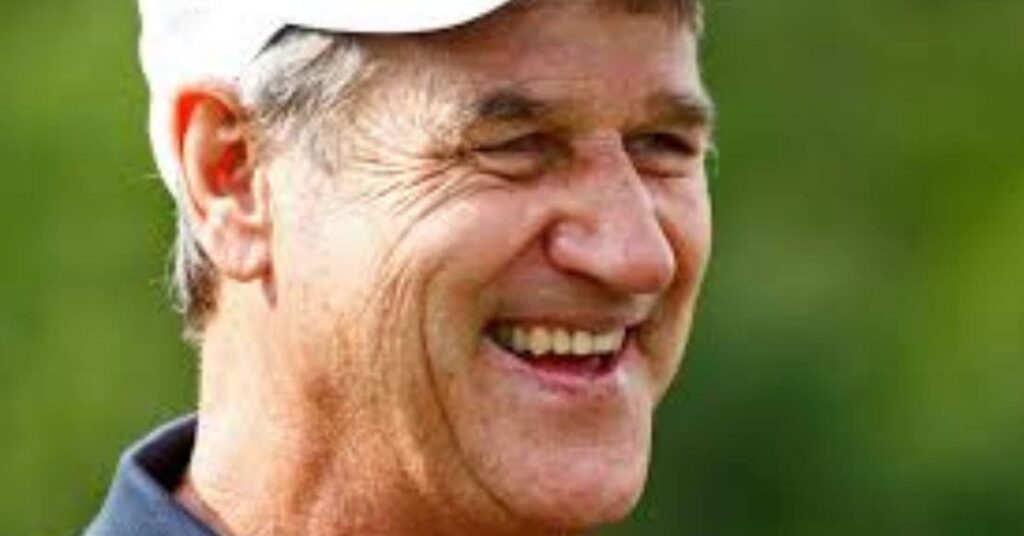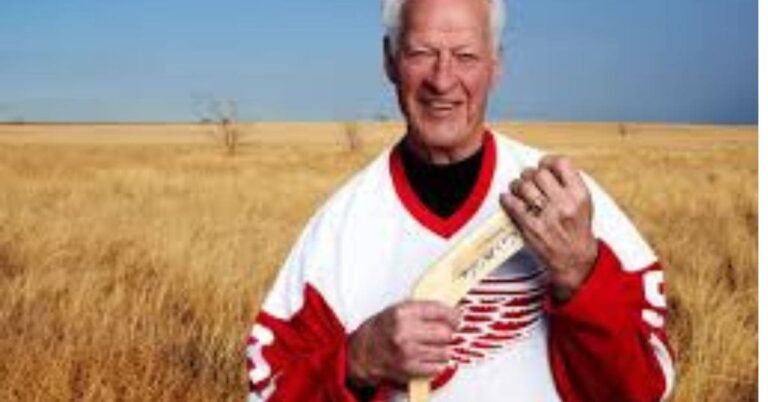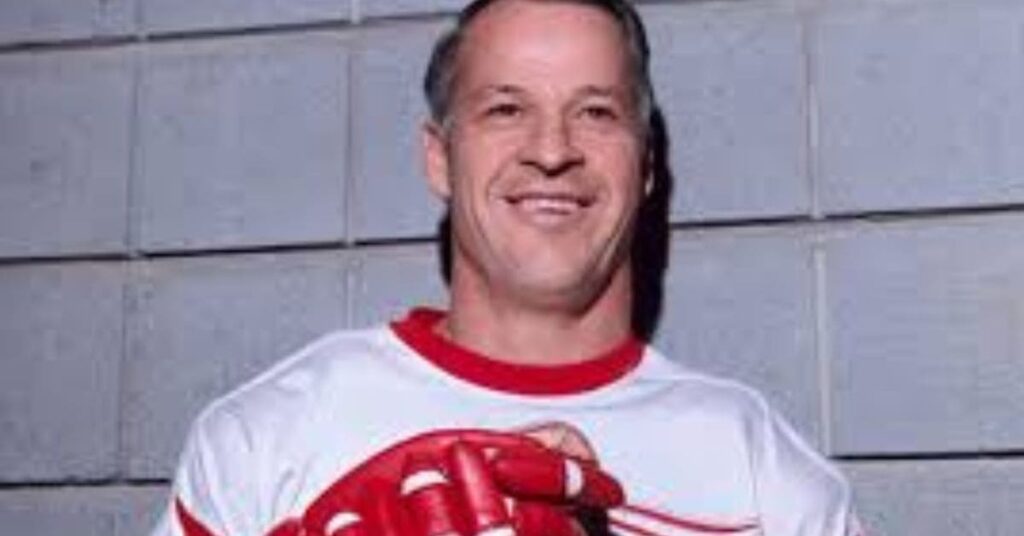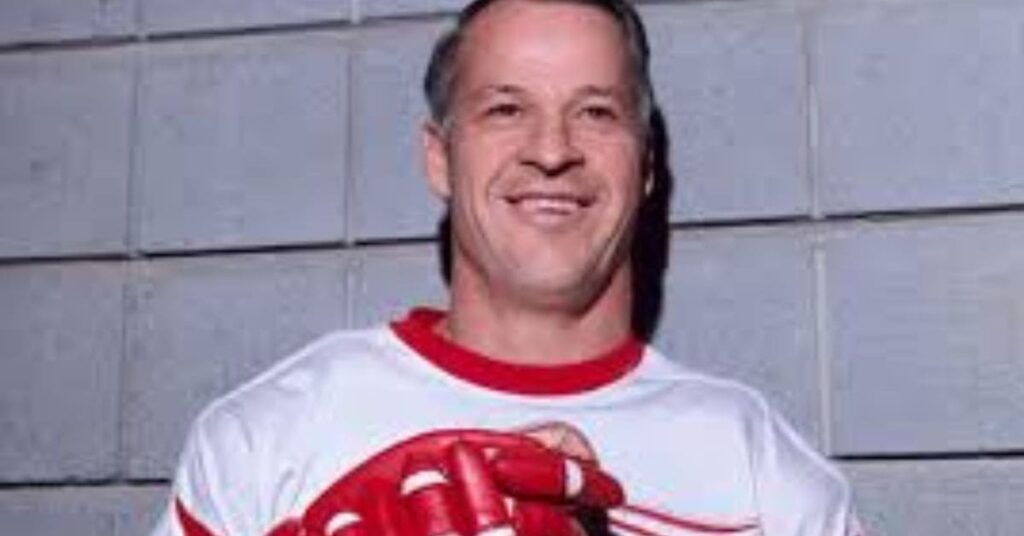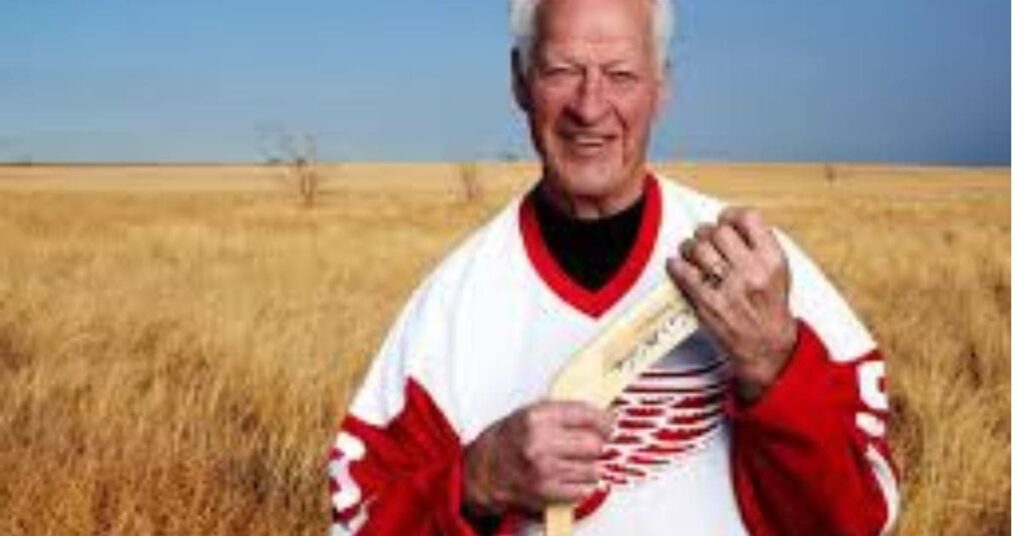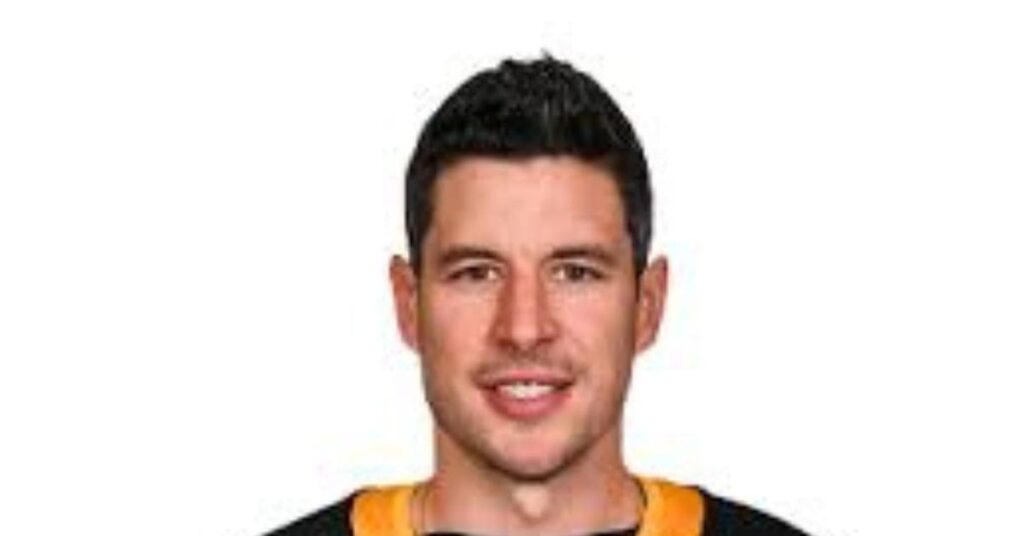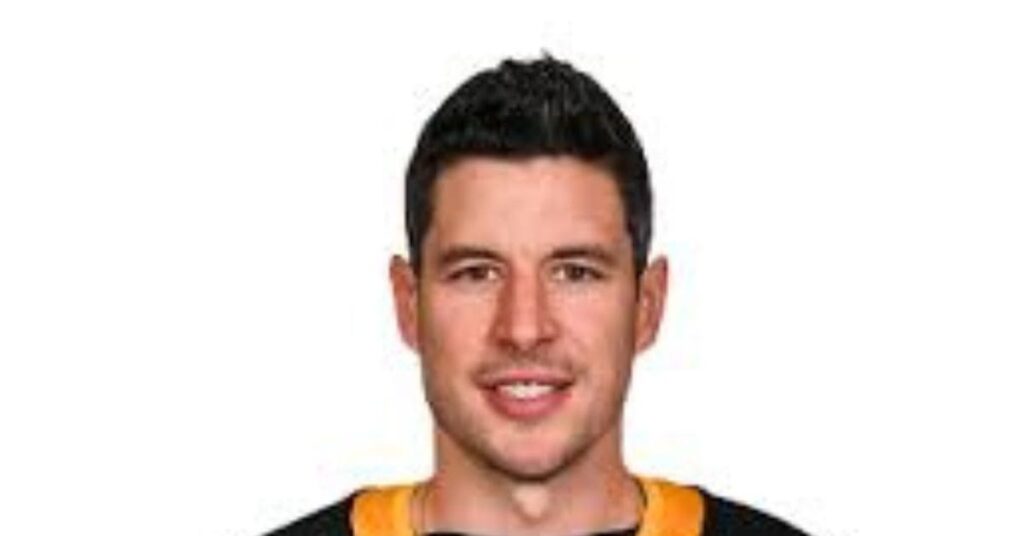Martin Brodeur is a well-known figure in hockey sports. Born on May 6, 1972, Martin has played 22 seasons in the National Hockey League (NHL). Out of the 22 seasons he has played, a 21 majority has been with the New Jersey Devils. At this team, Martin has etched his name in the annals of hockey history, having won three Stanley Cups among others. Get to know more about Martin Brodeur, his biography, net worth, awards, and many others.
Table of Contents
| Characteristics | Details |
|---|---|
| Full Name | Martin Pierre Brodeur |
| Date of Birth | May 6, 1972 |
| Place of Birth | Montreal, Quebec, Canada |
| Nationality | Canadian |
| Height | 6 ft 2 in (188 cm) |
| Weight | 220 lb (100 kg) |
| Position | Goaltender |
| Draft | Year: 1990<br>Round: 1<br>Overall Pick: 20<br>By: New Jersey Devils |
| Career | Profession: Ice Hockey Goaltender |
| Career earnings | $81,598,224 (converted to today’s value: $129,579,632) |
| NHL Rank | 56 (in terms of career earnings) |
| NHL Teams | New Jersey Devils, St. Louis Blues |
| International Career | Team: Canada |
| Spouse | Genevieve Nault (m. 2008) |
| Children | 5 (with 2 wives) |
Who is Martin Brodeur?
Martin Brodeur is a well-known Canadian-American former professional ice hockey goalie who is largely recognized as one of the best in the sport’s history. Brodeur was born on May 6, 1972, in Montreal, Quebec, into a hockey-obsessed family. His father, Denis Brodeur, won a bronze medal for Canada at the 1956 Olympics and was a long-time photographer for the Montreal Canadiens. Brodeur began playing hockey at an early age, inspired by his father’s enthusiasm for the sport. He began his career as a forward before switching to goaltending at the age of seven, a decision that would influence his brilliant future.
Brodeur was selected 20th overall by the New Jersey Devils in the 1990 NHL Entry Draft, launching an incredible career that spanned 22 seasons, 21 of which were spent with the Devils. His stint with the team was distinguished by outstanding accomplishments, including three Stanley Cup triumphs and five Eastern Conference titles. Brodeur’s persistent excellence is reflected in his multiple records, including being the NHL’s all-time regular-season leader in wins (691), shutouts (125), and goalkeeper games played (1,266). His ability to win at least 30 games in twelve straight seasons, as well as his status as the only goaltender with eight 40-win seasons, demonstrate his exceptional play in the league.
In his career, Brodeur was lauded not only for his statistical accomplishments, but also for his distinct playing style and technical ability. He used a hybrid style of goaltending that incorporated stand-up and butterfly techniques, evolving over time to include more modern tactics. Brodeur’s influence on the game was so profound that it resulted in the “Brodeur rule,” which limited where goaltenders could handle the puck outside the crease.
In addition to his club success, Brodeur had an outstanding international career with Team Canada, earning two Olympic gold medals in 2002 and 2010, among other achievements. His performance in these victories validated his status as a clutch performer on the global stage. Notwithstanding facing hurdles and competition for the starting position, he continuously displayed his skill and resilience, making a huge contribution to Canada’s hockey history.
Brodeur retired from professional hockey in 2015 after a brief stint with the St. Louis Blues. He then moved into management, first as the Blues’ deputy general manager. He later returned to the New Jersey Devils, serving as executive vice president of business development and hockey operations advisor.
Brodeur’s personal life has also been remarkable, first with his marriage to Melanie Dubois and later to Genevieve Nault, with whom he had a son. His autobiography, “Brodeur: Beyond the Crease,” digs into his thoughts on player pay, NHL marketing, and the evolution of the game following the lockout. Brodeur’s impact slopes beyond the ice, as seen by his community involvement and business interests, like as co-owning a restaurant with former colleague Sheldon Souray.
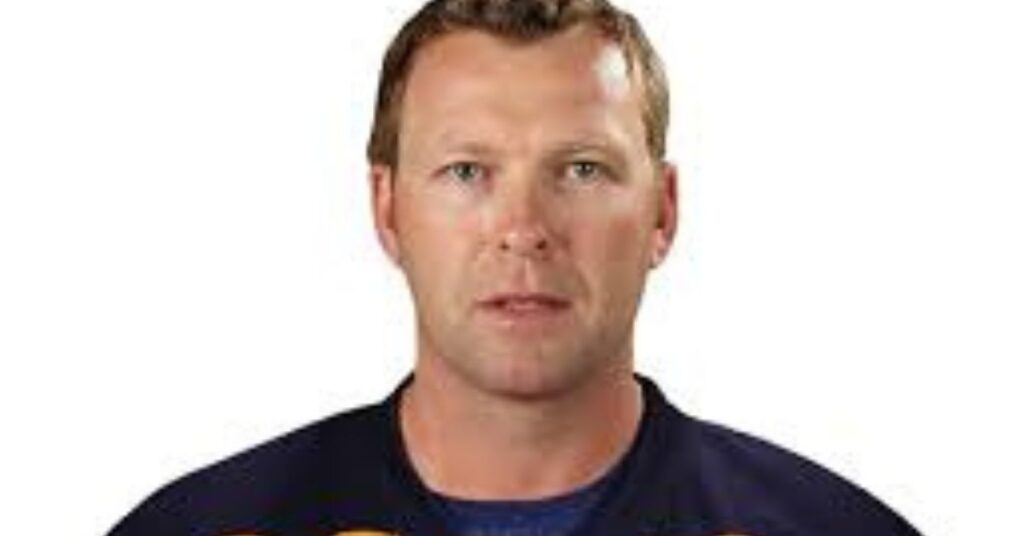
What is Martin Brodeur’s age, height, and weight?
Martin Brodeur is 52 years old and was born on May 6, 1972. He measures 6 feet 2 inches (188 cm) tall and weighs 216 pounds (98 kg or 15 stone 6 pounds).
| Characteristics | Detail |
|---|---|
| Age | 52 years old |
| Date of Birth | May 6, 1972 |
| Height | 6 feet 2 inches (188 cm) |
| Weight | 216 pounds (98 kg; 15 stone 6 pounds) |
What is Martin Brodeur’s Nationality and Ethnicity?
Martin Brodeur is Canadian-American by nationality. He was born in Montreal, Quebec, Canada, and later became a naturalized United States citizen. His ethnicity is primarily French-Canadian.
What is Martin Brodeur’s profession?
Martin Brodeur is a former professional ice hockey goalie who now works as an executive in the hockey industry. After retiring from sports, he moved into management positions. He is the New Jersey Devils’ executive vice president of business development and an advisor on hockey operations.
| Attribute | Detail |
|---|---|
| Profession | Former professional ice hockey goaltender |
| Playing Career | 1991–2015 |
| Current Role | Executive Vice President of Business Development, Advisor on Hockey Operations |
| Current Team | New Jersey Devils |
| Management Career Start | 2015 (Special Assistant to GM at St. Louis Blues) |
International Career
| Year | Team | Event | GP | W | L | T | MIN | GA | SO | GAA | SV% |
|---|---|---|---|---|---|---|---|---|---|---|---|
| 1996 | Canada | WC | 3 | 0 | 1 | 1 | 140 | 8 | 0 | 3.43 | .871 |
| 1996 | Canada | WCH | 2 | 0 | 1 | 0 | 60 | 4 | 0 | 4.00 | .846 |
| 1998 | Canada | OLY | 0 | 0 | 0 | 0 | 0 | 0 | 0 | — | — |
| 2002 | Canada | OLY | 5 | 4 | 0 | 1 | 300 | 9 | 0 | 1.80 | .917 |
| 2004 | Canada | WCH | 5 | 5 | 0 | 0 | 300 | 5 | 1 | 1.00 | .961 |
| 2005 | Canada | WC | 7 | 5 | 2 | 0 | 419 | 20 | 0 | 2.87 | .908 |
| 2006 | Canada | OLY | 4 | 2 | 2 | 0 | 238 | 8 | 0 | 2.01 | .923 |
| 2010 | Canada | OLY | 2 | 1 | 1 | 0 | 124 | 6 | 0 | 2.90 | .867 |
| Total | 29 | 17 | 7 | 2 | 1,601 | 60 | 1 | 2.25 | — |
What is Martin Brodeur’s current world ranking?
During his career, he was widely regarded as one of the greatest goaltenders of all time and was named one of the “100 Greatest NHL Players” in 2017 by the NHL. Martin Brodeur, the Canadian ice hockey player, is the all-time winningest goaltender in the National Hockey League, with 691 career victories.
Who are Martin Brodeur’s Parents?
Martin Brodeur’s parents are Denis Brodeur and Mireille Brodeur. Denis Brodeur was a former goaltender who won a bronze medal with Team Canada at the 1956 Winter Olympics and later became a well-known photographer, notably for the Montreal Canadiens. Mireille Brodeur, his mother, supported the family and Martin’s early career in hockey.
Does Martin Brodeur have siblings?
Yes, Martin Brodeur has four siblings. He has two brothers, Denis Jr. and Claude, and two sisters, Line and Sylvie. Denis Jr. is a photographer like their father, Denis Brodeur, while Claude was a minor league baseball pitcher in the Montreal Expos’ organization.
Who is Martin Brodeur married to?
Martin Brodeur was previously married to Melanie Dubois. They got married in August 1995 and have four children together: Anthony (born in 1995), twin sons William and Jeremy (born in 1996), and daughter Anabelle Antoinette (born in 2002). However, Brodeur and Melanie Dubois divorced amidst reports of Brodeur having an affair with Genevieve Nault, who was the wife of Melanie’s brother. Brodeur and Genevieve Nault eventually got married in June 2008 and have a son named Maxime Philippe Brodeur, born in November 2009.
| Marital Status | Spouse |
|---|---|
| Divorced | Melanie Dubois |
| Married | Genevieve Nault |
Does Martin Brodeur have children?
Yes, Martin Brodeur has children. He has four children from his previous marriage to Melanie Dubois: Anthony (born in 1995), twin sons William and Jeremy (born in 1996), and daughter Anabelle Antoinette (born in 2002). Additionally, he has a son named Maxime Philippe Brodeur (born in November 2009) with his current wife, Genevieve Nault.
| Children | Mother |
|---|---|
| Anthony | Melanie Dubois |
| William | Melanie Dubois |
| Jeremy | Melanie Dubois |
| Anabelle Antoinette | Melanie Dubois |
| Maxime Philippe Brodeur | Genevieve Nault |
What is Martin Brodeur’s Net Worth?
Martin Brodeur has a net worth of $55 million. He is regarded to have a hockey fortune of US $81,598, 224.
How much does Martin Brodeur make annually?
For more specific details, refer to the table below:
| Season | Earnings (US$) | Earnings (Today’s US$) | Rank |
|---|---|---|---|
| 1989-90 | $0 | $0 | 564 |
| 1990-91 | $80,000 | $186,561 | 568 |
| 1991-92 | $41,923 | $93,795 | 613 |
| 1992-93 | $35,000 | $76,001 | 1092 |
| 1993-94 | $190,000 | $400,755 | 582 |
| 1994-95 | $930,000 | $1,911,827 | 52 |
| 1995-96 | $1,500,000 | $2,999,409 | 82 |
| 1996-97 | $1,800,000 | $3,496,717 | 79 |
| 1997-98 | $2,025,000 | $3,843,867 | 86 |
| 1998-99 | $3,830,687 | $7,160,360 | 30 |
| 1999-00 | $4,130,687 | $7,555,651 | 36 |
| 2000-01 | $4,475,000 | $7,918,307 | 38 |
| 2001-02 | $4,705,687 | $8,097,492 | 45 |
| 2002-03 | $6,891,103 | $11,672,888 | 25 |
| 2003-04 | $6,891,103 | $11,413,998 | 25 |
| 2004-05 | $0 | $0 | N/A |
| 2005-06 | $5,237,238 | $8,171,368 | 22 |
| 2006-07 | $5,200,000 | $7,859,715 | 33 |
| 2007-08 | $5,200,000 | $7,641,748 | 52 |
| 2008-09 | $5,200,000 | $7,359,220 | 70 |
| 2009-10 | $5,200,000 | $7,385,289 | 73 |
| 2010-11 | $5,200,000 | $7,266,074 | 73 |
| 2011-12 | $5,200,000 | $7,043,834 | 82 |
| 2012-13 | $2,341,463 | $3,107,469 | 140 |
| 2013-14 | $5,000,000 | $6,539,749 | 90 |
| 2014-15 | $293,333 | $377,539 | 782 |
Career Total: US $81,598,224 (Today’s US$ 129,579,632) NHL Rank: 56 (Today’s Rank: 38)
How many houses and cars does Martin Brodeur have?
In 2015, the renowned NHL goaltender advertised his three-bedroom townhouse in West Orange, New Jersey, for $949,000. He has a $28 million estate in Ontario, and another in Toronto valued at $2 million.
What philanthropic causes or charities does Martin Brodeur support?
Brodeur has been involved with initiatives that promote children’s health and well-being, such as programs that increase impoverished youth access to sports and leisure activities.
Brodeur has expressed his support for cancer research and fundraising initiatives to treat the disease.
Brodeur has most certainly contributed to community development projects and activities focused at enhancing the quality of life in local communities, notably those where he has resided and played hockey.
How many businesses does Martin Brodeur own?
Martin Brodeur is known to co-own a business called La Pizzeria Etc. with former teammate Sheldon Souray.
What brands and endorsements does Martin Brodeur have?
Martin has an estimated endorsement and brand deals amounting to about $10 million.
How many awards has Martin Brodeur won?
Martin Brodeur has accumulated a remarkable array of awards and honors in his career in professional ice hockey.
Brodeur won three Stanley Cup championships with the New Jersey Devils in 1995, 2000, and 2003. These championships were the pinnacle of success in the NHL. Brodeur earned two Olympic gold medals while representing Team Canada at the Winter Olympics. He first won gold at the 2002 Salt Lake City Olympics and then again at the 2010 Vancouver Olympics.
Brodeur is a four-time winner of the Vezina Trophy, awarded annually to the NHL’s top goaltender. He received this prestigious honor in the 2002-2003, 2003-2004, 2006-2007, and 2007-2008 seasons. Brodeur has won the William M. Jennings Trophy five times throughout his career. This award is given to the goaltender(s) who have played for the team that allowed the fewest goals during the regular season. Brodeur earned this honor in the 1996-1997, 1997-1998, 2002-2003, 2003-2004, and 2009-2010 seasons.
Brodeur was awarded the Calder Memorial Trophy in the 1993-1994 NHL season. This prestigious award is given annually to the league’s most outstanding rookie player. Brodeur’s receipt of this award early in his career foreshadowed the greatness that was to come.
Brodeur was selected to participate in the NHL All-Star Game on ten occasions in his career. In addition to the aforementioned awards, Brodeur has received numerous other honors and recognitions, both within the NHL and internationally. These include being named to the NHL’s list of the “100 Greatest NHL Players,” induction into the Hockey Hall of Fame in 2018.
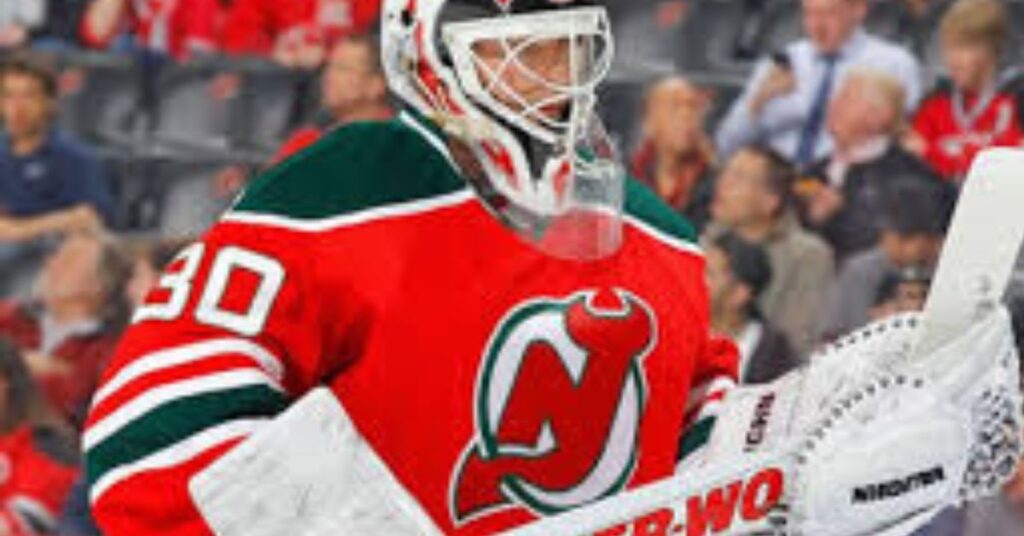
| Award/Honor | Description |
|---|---|
| Stanley Cup Championships | Won three Stanley Cup championships with the New Jersey Devils in 1995, 2000, and 2003. |
| Olympic Gold Medals | Earned two Olympic gold medals with Team Canada at the 2002 Salt Lake City Olympics and the 2010 Vancouver Olympics. |
| Vezina Trophy | Four-time winner of the Vezina Trophy, awarded to the NHL’s top goaltender in the 2002-03, 2003-04, 2006-07, and 2007-08 seasons. |
| William M. Jennings Trophy | Five-time recipient of the William M. Jennings Trophy for allowing the fewest goals in the regular season. |
| Calder Memorial Trophy | Received the Calder Memorial Trophy as the NHL’s top rookie in the 1993-94 season. |
| NHL All-Star Selections | Selected to participate in the NHL All-Star Game on ten occasions during his career. |
| “100 Greatest NHL Players” | Named to the NHL’s list of the “100 Greatest NHL Players.” |
| Hockey Hall of Fame | Inducted into the Hockey Hall of Fame in 2018. |
What unique records does Martin Brodeur hold in NHL history?
Martin Brodeur holds several unique records in NHL history, including the most wins by a goaltender in the regular season (691), the most losses (397), the most shutouts (125), and the most games played (1,266).
How did Martin Brodeur change the game of goaltending?
Brodeur revolutionized the goaltending position with his exceptional puck-handling skills, positional play, and hybrid style. His ability to handle the puck led to the NHL implementing the “Brodeur Rule” to restrict goaltenders’ movements outside the crease.

What unexpected talent does Martin Brodeur possess?
In addition to his goaltending prowess, Martin Brodeur is one of only 14 NHL goaltenders to score a goal in the regular season. He also holds the record for the most goals scored by a goaltender in NHL history with three goals.
How did Martin Brodeur begin his hockey career?
Martin Brodeur initially started playing hockey as a forward but transitioned to goaltending at the age of seven when his coach asked him to play as a backup goaltender in a youth tournament.
What family legacy does Martin Brodeur come from?
Martin Brodeur comes from a family deeply rooted in hockey. His father, Denis Brodeur, played in the 1956 Olympics for Team Canada and later worked as a photographer for the Montreal Canadiens.
How has Martin Brodeur contributed to the community off the ice?
Off the ice, Martin Brodeur has been involved in philanthropic endeavors, including supporting children’s charities, cancer research, and community development projects. Additionally, he co-owns a business called La Pizzeria Etc.
What notable personal achievements has Martin Brodeur accomplished?
In addition to his professional accomplishments, Martin Brodeur has authored an autobiography titled “Brodeur: Beyond the Crease,” co-authored with sports journalist Damien Cox. He also became a naturalized United States citizen in 2009.
Is Martin Brodeur the best goalie of all time?
In 2007, he was a contender for the Hart Trophy (MVP). Luongo played the second-most games (1,044) and made the second-most saves (28,409) of any goaltender in NHL history, trailing only Martin Brodeur (1,266 and 28,928, respectively). Brodeur’s impressive career statistics, numerous records, and accolades certainly place him among the greatest goaltenders in NHL history. On one hand, Brodeur’s longevity, consistency, and success over a 22-season NHL career, including three Stanley Cup championships and multiple individual awards, make a compelling case for his greatness.
Career Achievements:
| Achievement | Description |
|---|---|
| Most wins in the regular season | 691 |
| Most losses in the regular season | 397 |
| Most shutouts in the regular season | 125 |
| Most games played in the regular season | 1,266 |
| Most goals scored by a goaltender in NHL history | 3 |
| Four-time winner of the Vezina Trophy | Recognized as the NHL’s top goaltender |
| Five-time recipient of the William M. Jennings Trophy | Awarded for allowing the fewest goals in the regular season |
| Received the Calder Memorial Trophy | Honored as the NHL’s top rookie |
| Selected to participate in the NHL All-Star Game | Ten-time selection |
| Named to the NHL’s list of the “100 Greatest NHL Players” | Recognized as one of the greatest players in NHL history |
| Inducted into the Hockey Hall of Fame | Elected to the Hockey Hall of Fame in 2018 |
Impact on the Game:
| Contribution | Description |
|---|---|
| Revolutionized goaltending with exceptional puck-handling skills | Known for his ability to play the puck effectively, influencing rule changes in the NHL |
| Transitioned from forward to goaltender at a young age | Started playing hockey as a forward but later switched to goaltending at the age of seven |
| Left a lasting legacy on the game of hockey | Contributed to the sport’s evolution with his innovative style and techniques |
Personal and Community Involvement:
| Involvement | Description |
|---|---|
| Engaged in philanthropic endeavors | Supported children’s charities, cancer research, and community development projects |
| Co-owns a business called La Pizzeria Etc. | Involved in entrepreneurial ventures beyond the realm of hockey |
| Authored an autobiography titled “Brodeur: Beyond the Crease” | Shared insights and stories from his life and career journey |
| Became a naturalized United States citizen | Underwent the citizenship process and became a citizen of the United States in 2009 |
QMJHL
| Award | Year(s) |
|---|---|
| All-Rookie Team | 1990 |
| Second All-Star Team | 1992 |
NHL
| Award | Year(s) |
|---|---|
| All-Rookie Team | 1994 |
| All-Star Game | 1996, 1997, 1998, 1999, 2000, 2001, 2003, 2004, 2007 |
| Calder Memorial Trophy | 1994 |
| EA Sports NHL cover athlete | 2014 |
| First All-Star Team | 2003, 2004, 2007 |
| Second All-Star Team | 1997, 1998, 2006, 2008 |
| Stanley Cup | 1995, 2000, 2003 |
| Vezina Trophy | 2003, 2004, 2007, 2008 |
| William M. Jennings Trophy | 1997†, 1998, 2003†, 2004, 2010 |
†Shared with Mike Dunham in 1997. Tied with Roman Čechmánek and Robert Esche in 2003.
Nominations
| Award | Year(s) |
|---|---|
| Vezina Trophy | 1997, 1998, 2001, 2003, 2004, 2006, 2007, 2008, 2010 |
| Hart Memorial Trophy | 2003, 2004, 2007 |
Other
| Award | Year(s) |
|---|---|
| ESPY – Outstanding Performance Under Pressure | 1996 |

